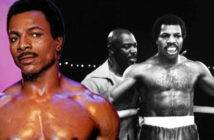Leicester City has re-written the script of football. And for those of you who might have loosen hope and hold dearly to the notion that impossible cannot be come possible, you better have a rethink. Leicester City triumph as the champion of the English Premiership easily ranked among the greatest sporting feats in history.
The English Premiership is the most lucrative football league in the world, its only better by the UEFA Champions League. The Premiership television rights and followership easily dwarfed that of the Spanish, Italian, French and the German leagues. While the likes of Manchester City, Chelsea, Manchester United, Arsenal and Tottenham spent over £120m to booster their team, Leicester could only spent a meager £30m. Claudio Ranieri’s appointment was not well received by some fans after the sacking of Nigel Pearson in the summer. He was seen as an uninspired choice and some pundits questioned the rationale behind his appointment after his predecessor had overseen a run of seven wins in nine games as Leicester escaped relegation in 2014-15. The Italian’s previous job ended abruptly when his Greece side lost to European minnows Faroe Islands during Euro 2016 qualifying.
In an age when success has long seemed restricted to a predetermined few, Leicester’s achievement can hardly be overstated. English football’s hegemony has been successfully challenged, not just in a Cup competition where such exploits are more easily achieved, but pricked and poked consistently over the long grind of a league season and by a side that began the season as 5000-1 outsiders.
Many have likened Leicester accomplishment to that of Brian Clough’s Nottingham Forest of the 70s. Nottingham was 13th in the old Second Division when Brian Clough took over as manager in January 1975. Promoted to the First Division in his second full season, champions of England in the next, and champions of Europe a year later. Four years and five months from nowhere to the European Cup. Retaining the European Cupthe following year. It is unlikely ever to happen again.
Leicester’s story is epitomized by an assemblage of rejects led by 29-year-old striker Jamie Vardy. Released by Sheffield Wednesday at 16 for being too small, he rose through non-league football until Leicester paid Fleetwood Town £1m for him in 2012. He is now an England international, third in the Premier League’s scoring charts this season with 22 and was named the Football Writers’ Association Footballer of the Year on Monday. The Professional Footballers’ Association Player of the Year Riyad Mahrez, 25, was bought for just £400,000 from French second-tier side Le Havre in January 2014.
Only 14 players have made more than a dozen league appearances – illustrating how settled the side has been – and Ranieri’s preferred starting XI cost an estimated £22m, less than a 10th of what is arguably big-spending Manchester City’s first-choice line-up. Leicester’s record £8m signing Leonardo Ulloa is usually a substitute.
Money is instrumental to success but not every time as Leicester just demonstrated. In an era of ever-increasing television revenue, where the latest deal is worth £5.136 bn. it was considered unthinkable that any team could break the dominance of the traditional elite clubs. Yet Leicester have defied financial logic.
Cost of squad
Man City £415m. Man Utd £395m. Chelsea £280m. Liverpool £260m. Arsenal £231m. Tottenham £159m. Newcastle £145m. Southampton £139m. Everton £112m. Sunderland£ 112m. West Ham £106m. Aston Villa £93m. Stoke £73m. Crystal Palace £72m. Leicester £63m. West Brom £62m. Swansea £56m. Watford £53m. Norwich £55m. Bournemouth £43m.
Leicester became the first first-time winners of England’s top-flight title since Nottingham Forest achieved the feat under Brian Clough in 1978. Europe’s other major leagues have all had more recent first-time winners, though it is 25 years since a previously title-less team enjoyed success in Italy.
France – Montpellier, 2012
Germany – Wolfsburg, 2001
Italy – Sampdoria, 1991
Scotland – Dundee United, 1983
Spain – Deportivo La Coruna, 2000.
Many footballer fans all over the world believed Claudio Ranieri should be named the coach of the year at the FIFA Awards night in Switzerland in January 2017
Top of Form





